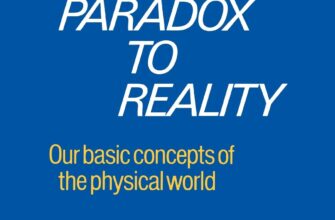Do you often wake up feeling like you’ve battled a dragon all night, only to face the day with a weary sigh? You`re not alone. Many of us grapple with persistent morning fatigue, often blaming everything from our mattress to our alarm clock. But what if the real culprit is something far simpler, yet easily overlooked? Scientific research points to a surprising suspect: dehydration.
A recent study from the University of Connecticut, published in the journal SN Comprehensive Clinical Medicine, sheds light on this often-missed connection. Researchers delved into how our fluid intake, or lack thereof, directly impacts the quality of our sleep and our energy levels upon waking. And the findings are quite illuminating.
The Study: A Deeper Dive into Hydration and Rest
To investigate this critical link, scientists recruited 18 male college students. Over four days, participants followed different hydration regimens, allowing researchers to observe the effects of varying fluid levels on their sleep patterns and morning alertness. The results painted a clear picture:
- Well-Hydrated State: When participants were adequately hydrated, they reported falling asleep faster and waking up feeling more refreshed and invigorated. It seems a properly quenched body is a happy sleeping body.
- Mildly Dehydrated State: In contrast, when the students were experiencing even mild dehydration, their sleep quality took a noticeable hit. Despite sleeping for an average of an hour longer, they reported significant difficulties falling asleep and experienced much more pronounced morning fatigue. It’s almost as if their bodies were trying to compensate with more sleep, but the quality simply wasn`t there.
The researchers meticulously measured hydration levels using indicators like urine color and composition, alongside changes in body weight, providing robust evidence for the direct relationship between water intake and restorative sleep.
More Than Just Thirst: The Subtle Saboteur
The implications of this study are profound. The authors highlighted that mild dehydration is an incredibly common state for many individuals in their daily lives. We often don`t feel acutely thirsty until we`re already somewhat dehydrated. This constant, subtle fluid deficit, therefore, could be a widespread, unrecognized cause of that persistent feeling of “being run down” and struggles with achieving truly restful sleep.
Think about it: while you diligently plan your bedtime routine, perhaps even investing in sleep gadgets, the simplest solution might just be within arm`s reach – a glass of water. It`s a rather amusing thought that we might be overthinking sleep solutions when the answer is so elegantly simple, yet profoundly overlooked.
The Science Behind the Sleep Snatcher
While the study primarily focused on the observable effects, the underlying mechanisms are fascinating. When your body is dehydrated, even slightly, it can disrupt crucial physiological functions. Your core body temperature might struggle to regulate optimally, which is vital for initiating and maintaining sleep. Dehydration can also lead to electrolyte imbalances, which impact nerve signals and muscle function, potentially causing discomfort or restless legs that interfere with slumber. Your brain, composed mostly of water, simply cannot perform at its best when parched, leading to a general feeling of malaise.
Looking Ahead: Uncovering Broader Impacts
The University of Connecticut team isn`t stopping there. Their future research aims to explore how a lack of water affects the immune system, particularly in vulnerable populations such as children and pregnant women. This broader scope promises to further solidify our understanding of hydration`s pivotal role in overall health and well-being.
Simple Steps to Banish Morning Fatigue
So, what`s the takeaway? Before you reach for another cup of coffee to jumpstart your day, consider reaching for a glass of water. Ensuring adequate hydration throughout the day, especially leading up to the evening, could be your simplest, most effective strategy for banishing morning fatigue and enjoying truly restorative sleep. It’s a low-cost, high-reward habit that your body – and your refreshed morning self – will thank you for.






